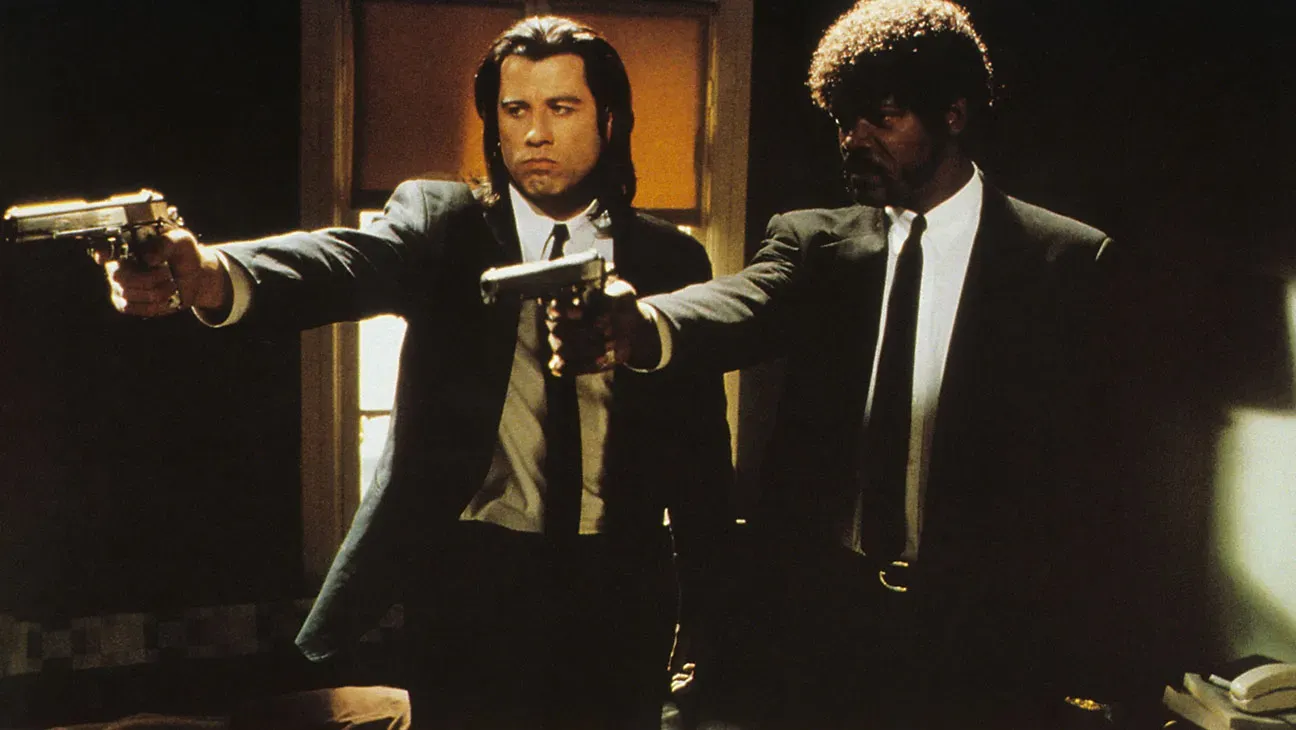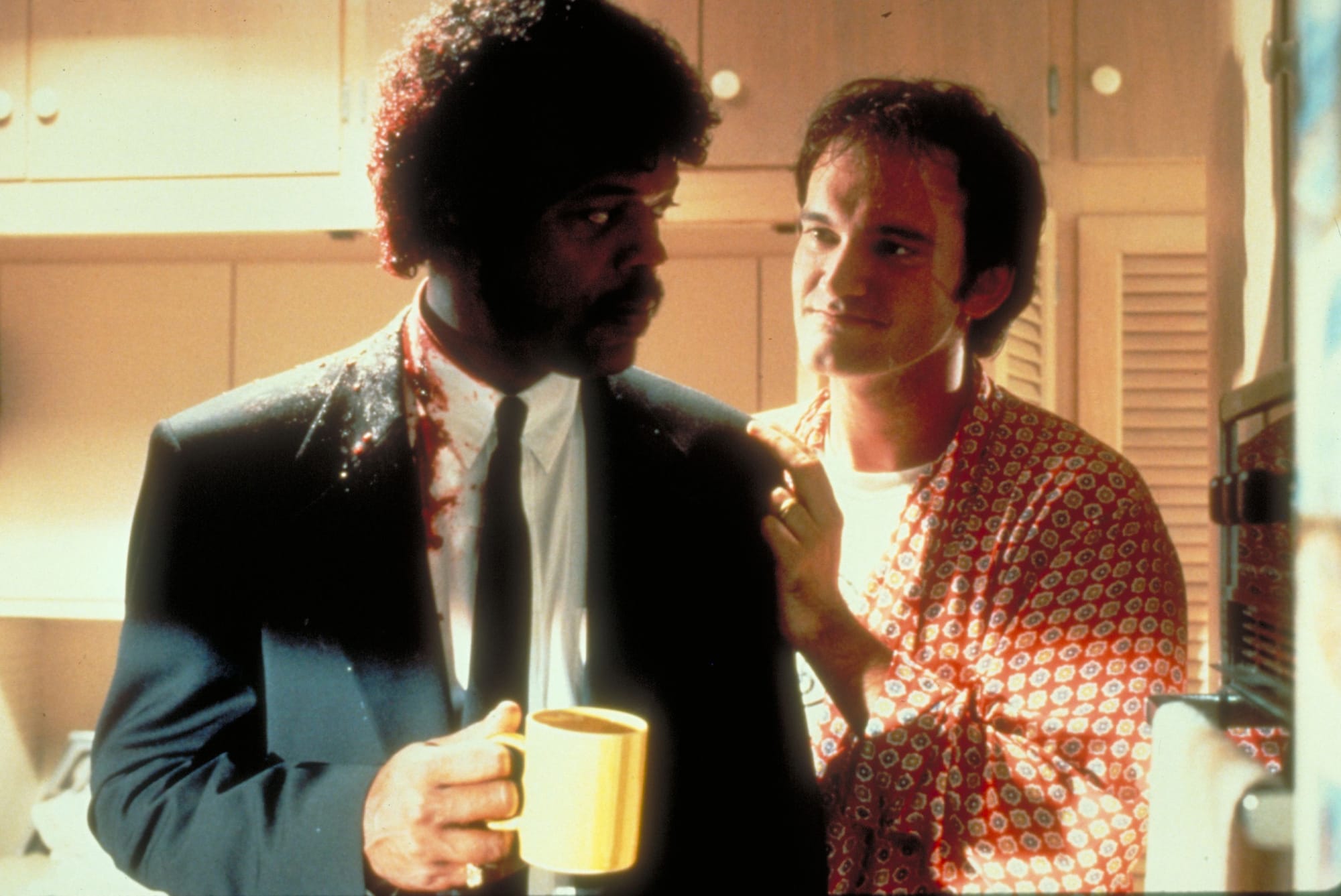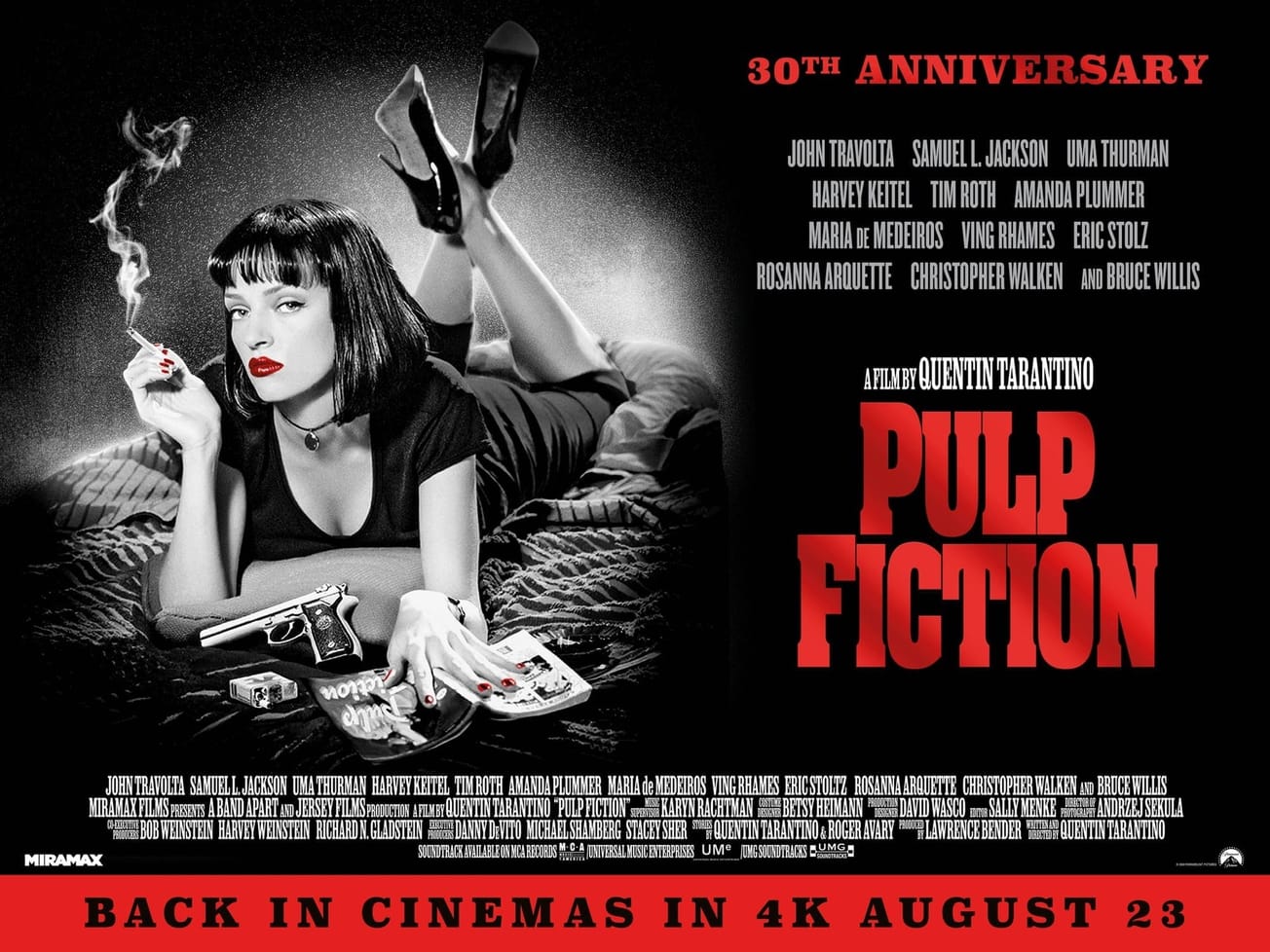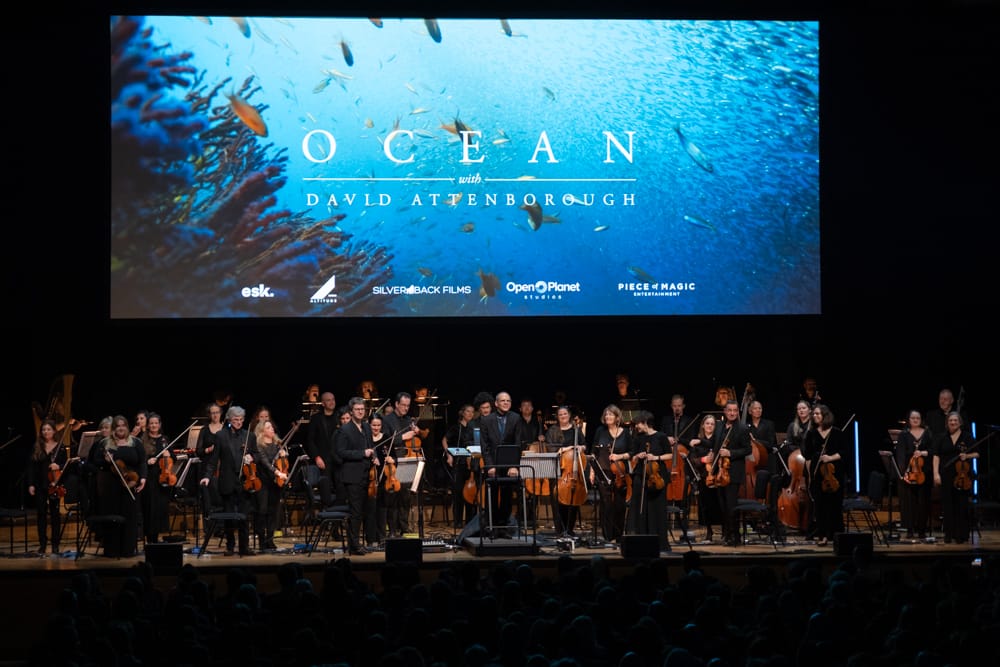By Nadiya Jackson, Fourth Year, Film and TV Sub-Editor
Thirty years on, the cinematic masterpiece that redefined film is returning to cinemas so we can witness the madness on the big screen. If you haven’t already succumbed to the pressure to watch one of the most praised films, then now is your chance.
Produced on a (comparatively) modest budget of $8 million (Titanic, released in 1997, had a budget of $200 million), the film’s impact has since transcended its humble origins, resonating with audiences around the world and maintaining its relevance three decades later. Its ever-present poster of Uma Thurman as Mia Wallace, lounging provocatively on a bed while smoking, remains a staple of pop culture, adorning the walls of teenage bedrooms, bars, and coffee shops alike. The film’s dialogue, soundtrack, and characters have left a lasting imprint on film, television, and even music videos. Its eccentric storytelling, dark humour, and vibrant aesthetic have made it a cinematic favourite, and the movie is now returning to theatres on the 23rd of August in glorious 4K to mark its 30th anniversary.
Tarantino’s apparent disregard for traditional culture has cemented his place as a revolutionary filmmaker. He has always been an outspoken advocate of the cinematic experience. Known for his distinctive dialogue, genre-bending, and ability to fuse pop culture with film history, Pulp Fiction is quintessentially “Tarantino.” His movies defy conventional storytelling, and this is a prime example of that boldness. The film’s nonlinear structure challenges viewers while offering multiple layers of narrative depth. The central plot weaves together the lives of two hitmen, Vincent Vega (John Travolta) and Jules Winnfield (Samuel L. Jackson), their quest to retrieve a mysterious briefcase for their mob boss, Marsellus Wallace (Ving Rhames), and a semi-retired boxer (Bruce Willis) navigating his own way out of trouble. Tarantino’s genius lies in taking these seemingly disparate characters and stories and tying them together into a cohesive whole.

And, of course, what makes this film so memorable is its dialogue. Tarantino's characters engage in mundane conversations about fast food, foot massages, and pop culture, even while dealing with life-or-death situations. This juxtaposition of the ordinary and the violent creates a sense of unpredictability that keeps audiences enthralled. Jules Winnfield’s moral code and Mia Wallace’s philosophical reflections are explored through conversations that feel natural but are packed with subtext. From the iconic recital of a Bible verse before Jules executes someone, to the comedic discussion about a Quarter Pounder being called a ‘Royale with cheese’ in France helps make Pulp Fiction an enduring classic.
At the 1994 Cannes Film Festival, Pulp Fiction took home the prestigious Palme d'Or, marking its place in cinematic history. It not only revived John Travolta’s career but also turned Samuel L. Jackson into a superstar while confirming Uma Thurman as a leading actress of her generation. It changed their careers but also Hollywood as a whole. As Thurman puts it: “It changed cinema, and it changed every filmmaker that I've ever met.”
Despite its critical and commercial success, Pulp Fiction has not been without controversy. Tarantino’s use of violence, racial slurs, and morally ambiguous characters has sparked debates since the film’s release. The film’s dark humour and graphic content pushed the boundaries of mainstream cinema, and while it earned praise for its innovation, it also attracted criticism for its portrayal of certain themes. Critics raise questions about whether his films perpetuate harmful stereotypes which impact viewers. Despite this, Tarantino has consistently defended his creative choices, asserting that his films are meant to be provocative. Certainly, his films are not for children, but I must agree with his casual remark when questioned on why he implements so much violence replying with “Because it’s fun!”. And Tarantino keeps impressing us all with, notably, the utterly gruesome and unforgettable scene at the end of his 2019 Western film Once Upon a Time in Hollywood. Not everyone’s cup of tea but is one to remember. Whatever your preference, Pulp Fiction’s artistry and innovation continue to stand apart from the controversies surrounding its production.

Whether you’re revisiting Pulp Fiction for the hundredth time or experiencing it for the first time, there’s no denying its lasting impact on film and culture. So, for us university students who sadly weren’t around for its release, its return to theatres in 4K offers us an immersive experience of Tarantino’s masterpiece. The way a great film should be enjoyed.








